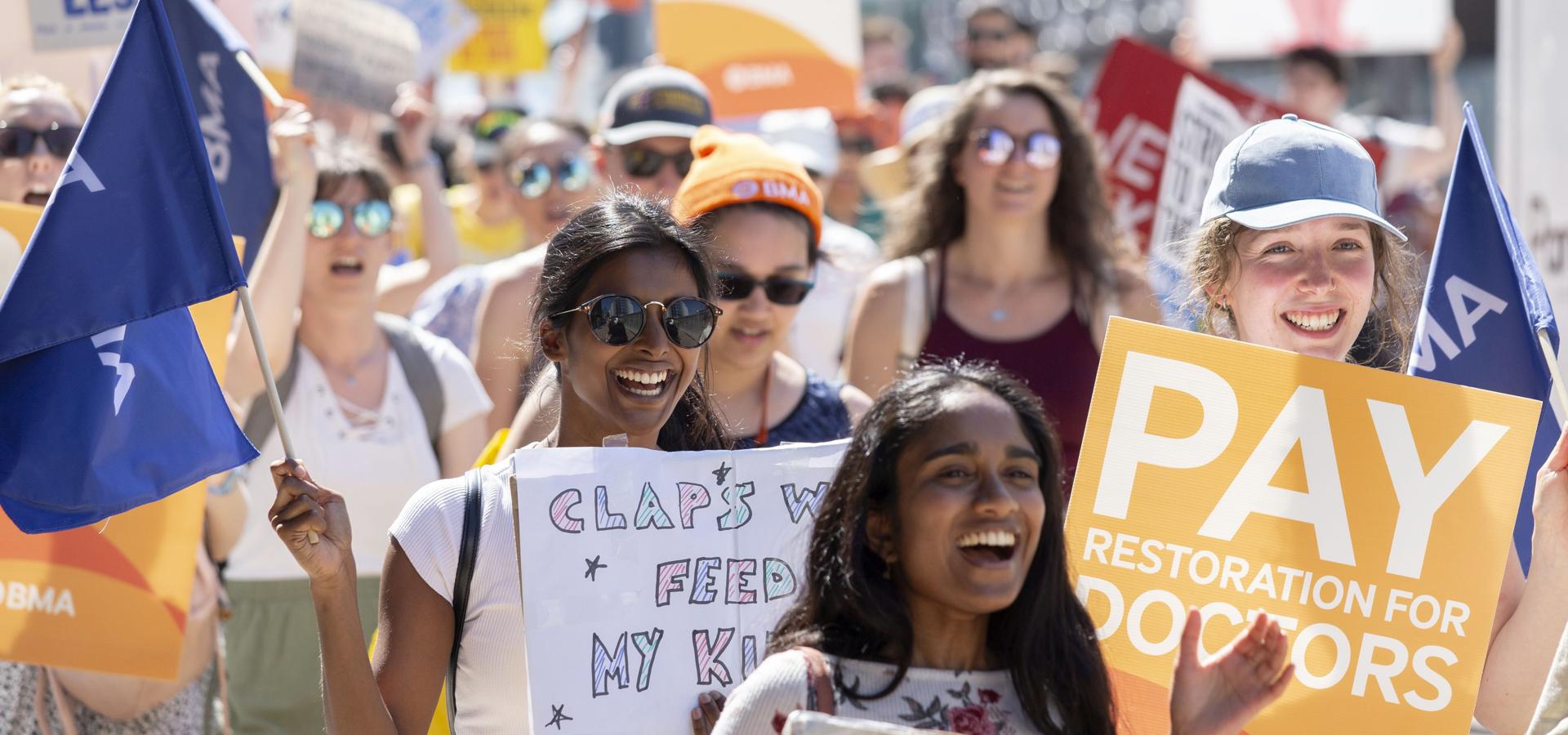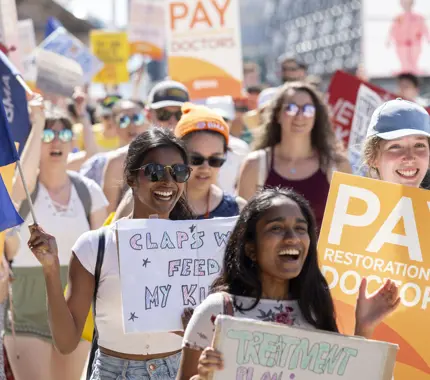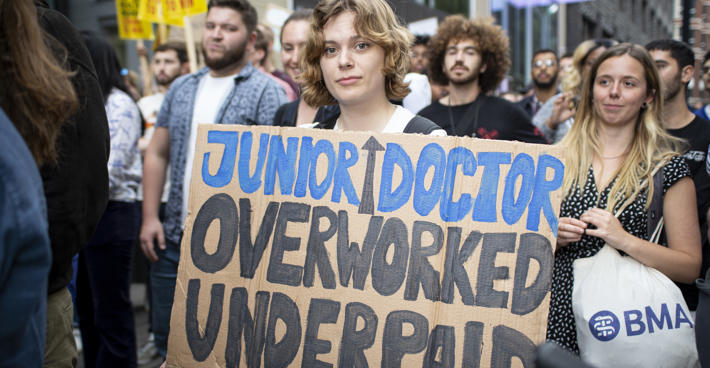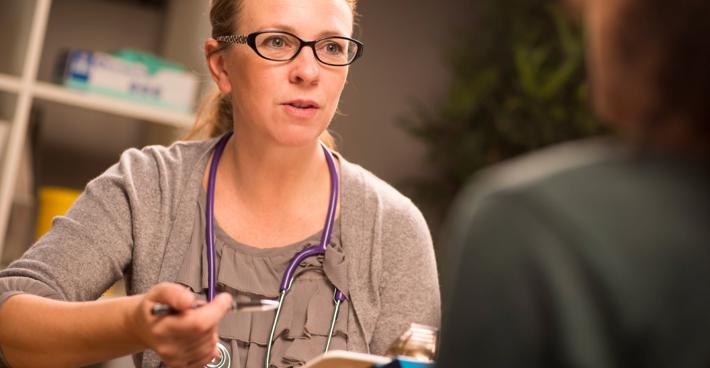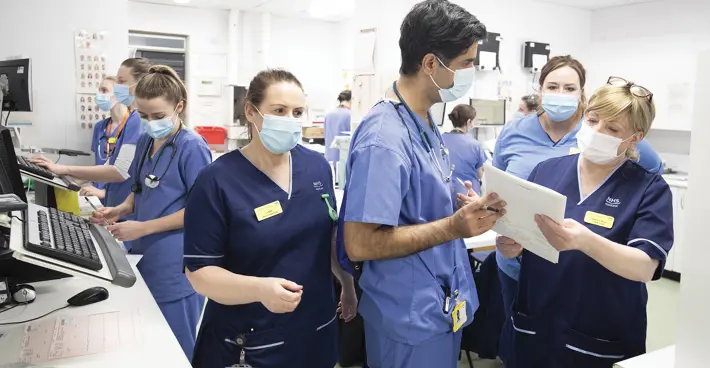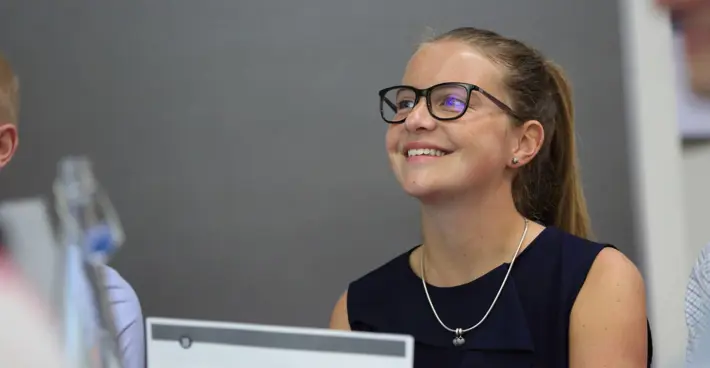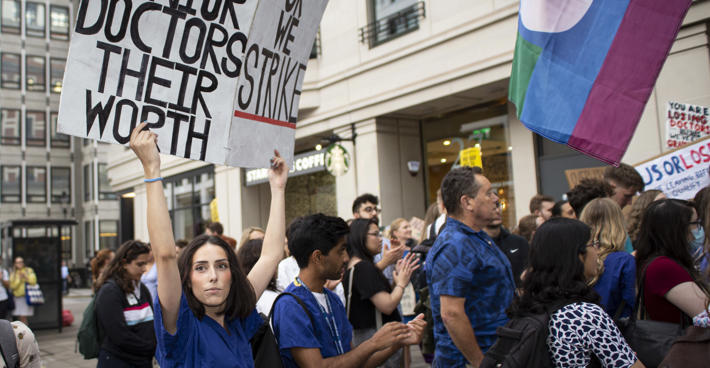We negotiated until the eleventh hour in an attempt to avert strike action, but all the Health Secretary came back with was the promise of more talks.
Nothing substantive. Nothing on pay and only vague words on possible non-pay elements of any deal.
Doctors are not worth 21% less than they were in 2008, nor has work diminished by 21%. Our ask is a reasonable one and we'll continue to make the case for full pay restoration until the Government realises that we won't be taken for granted.
Well done for holding the line!


Ballot results
Turnout: 55.32%
Entitled to vote: 53,766
Number of votes: 29,741
Yes votes: 26,766 (90.05%)
No votes: 2,956 (9.95%)
Spoiled or invalid ballots: 19
Bringing the training places crisis into our pay dispute
Throughout this dispute, the BMA has heard serious concerns about resident doctors being able to secure a job in the future.
According to our recent survey, a third of all resident doctor respondents had no role secured from August. For FY2s alone, 52% said they didn’t have any planned substantive employment or regular locum work coming up.
The BMA is, therefore, launching an additional linked dispute with the Government, demanding action both on pay and training bottlenecks on behalf of newly-qualified FY1s, who, in the coming years, will be most heavily impacted by the problem.
Resident doctor pay is still down by more than a fifth: enough is enough
With the DDRB award, pay erosion against RPI will be at 21%. Or, put another way, resident doctors are still working more than a fifth of their time for free.
A pay uplift of 26% is needed to reverse it. For more information, please see our pay methodology.


A brief history of our campaign
After 11 rounds of historic strike action, we reached a deal with Government in September 2024 that started a journey towards pay restoration.
But the deal with Government was just the first step.

Campaign resources
Download campaign materials.
As of 18 September, all references to junior doctors in BMA communications have been changed to ‘resident doctors’.
Making up nearly 25% of all doctors in the UK, this cohort will now have a title that better reflects their huge range of skills and responsibilities.
Find out more about why junior doctors are now known as 'resident doctors'.

